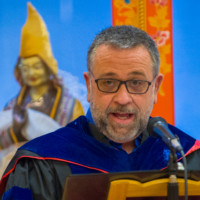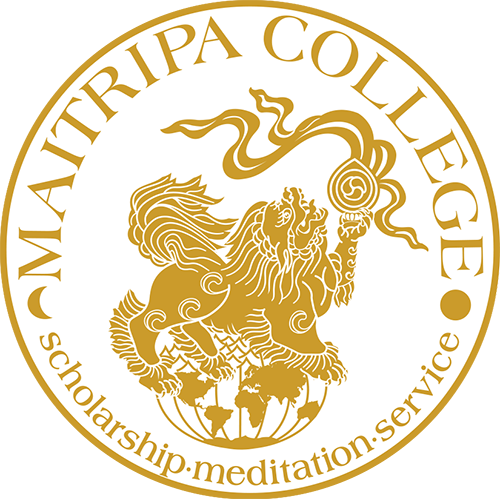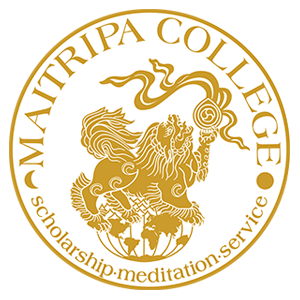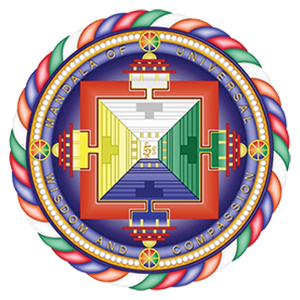Summary
Our motivation for learning Tibetan, or learning to translate a Tibetan work into English, tends to be focused on the end result—the way that our labors fulfill the goals of others. But there is another aspect of working with Tibetan texts that is important, which lies in recognizing the value of engaging with them for the purpose of advancing our own development.
In this piece, José Cabezón, Dalai Lama Professor of Religious Studies at UC Santa Barbara, President-Elect of the American Academy of Religion, and Maitripa College Trustee, discusses the ways that the act of working with Tibetan texts, and translation itself, is valuable for oneself and valuable as a way of teaching and learning. This piece references the unique, rigorous, painstaking method of Tibetan critical, textual scholarship to highlight contrasts and parallels with the ways that Western students of Buddhist thought generally approach the tradition.
At Maitripa College, we see this presentation of the work of doing close reading of texts with a teacher and/or colleagues and the process of transforming those texts into another language through translation as facilitating a kind of spiritual and academic formation, allowing the student to access, examine, and engage with the texts and teachings in ways otherwise not possible. (Click here to learn more about the Tibetan Language Program and Courses offered at Maitripa College).
“Translation for the Sake of Self and Other”
by José Ignacio Cabezón, PhD
Let me start by saying that my remarks here concern literary, rather than oral, translation. When we think of translating a literary work, we tend to focus on, understandably, the end result—on how our labors, the production of a work in the target language fulfills the goals of others. But I want to reflect here on two other aspects of translation related to learning, having more to do with the process of translation than with the result. That is, with the act of translation rather than the end product, which is the translated text as an object to be publicly disseminated.
I want to suggest that the very act of translation, not just the end result, but the act itself, is valuable—valuable for oneself and valuable as a pedagogical means, as a way of teaching and learning.
First, let’s examine the topic of the way translation serves one’s own goals. . . . CLICK HERE TO CONTINUE TO FULL ARTICLE (PDF)
*This paper is an edited selection from the Keynote Address delivered by Josè Ignacio Cabezón at the Translation and Transmission conference organized by the Tsadra Foundation, on June 3, 2017. Transcribed and edited by Namdrol Miranda Adams, and approved by Dr. Cabezon, March 2019.
*Please follow this link for video and audio of the full original presentation: http://conference-wp.tsadra.org/session/translation-for-the-sake-of-self-and-other/)
José Ignacio Cabezón, PhD
 José Cabezón, PhD, is the XIVth Dalai Lama Professor of Tibetan Buddhism at the University of California, Santa Barbara and a founding member of the Board of Trustees of Maitripa College where he often visits to participate in academic events and give guest lectures and workshops. Cabezón is the author or editor of a dozen books and many more articles on various aspects of Tibetan religion and religious studies. Most recently, he has been awarded a Guggenheim Fellowship and an American Council of Learned Societies/Ho Foundation grant to complete three-decades long research on the history of Sera Monastery. >more
José Cabezón, PhD, is the XIVth Dalai Lama Professor of Tibetan Buddhism at the University of California, Santa Barbara and a founding member of the Board of Trustees of Maitripa College where he often visits to participate in academic events and give guest lectures and workshops. Cabezón is the author or editor of a dozen books and many more articles on various aspects of Tibetan religion and religious studies. Most recently, he has been awarded a Guggenheim Fellowship and an American Council of Learned Societies/Ho Foundation grant to complete three-decades long research on the history of Sera Monastery. >more


